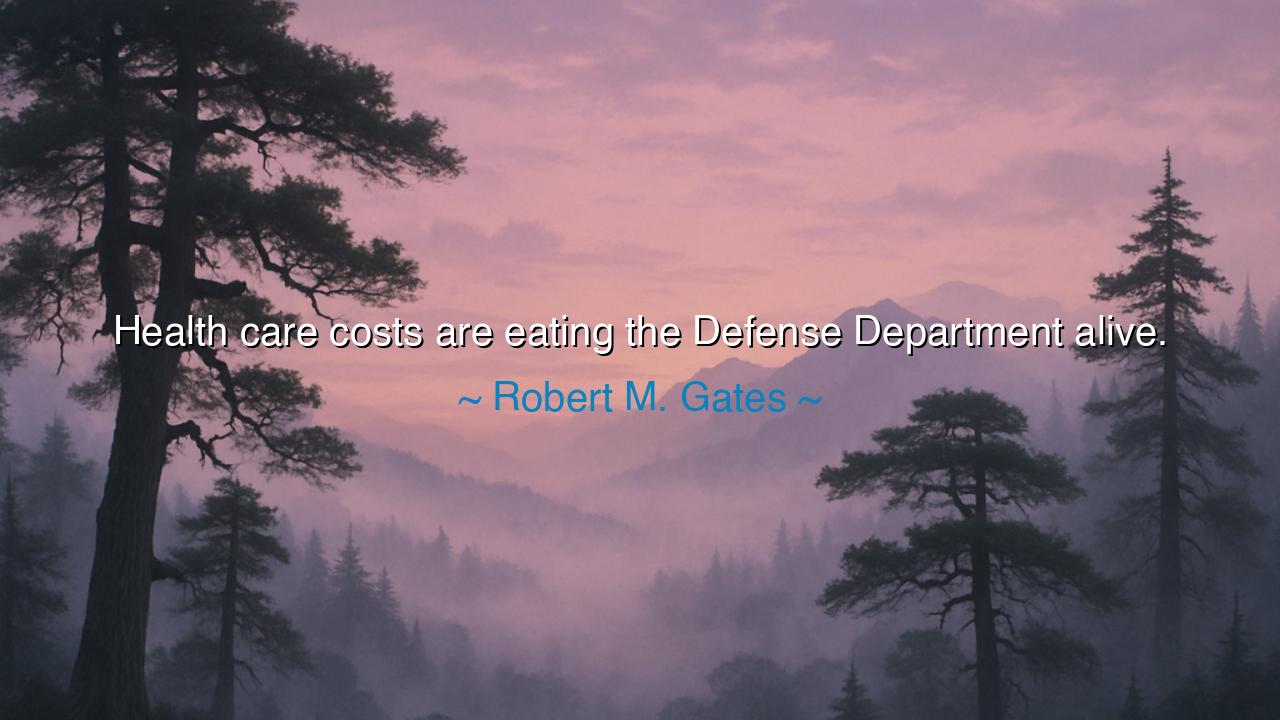
Health care costs are eating the Defense Department alive.






The words of Robert M. Gates, former U.S. Secretary of Defense, echo through the halls of time like a warning carved in stone: “Health care costs are eating the Defense Department alive.” To hear this is to sense not merely an accounting lament, but a cry from the heart of a vast empire weighed down by its own body. In this single sentence lies a parable for nations and for humankind itself — that when the body grows heavy with its ailments, the hand that guards it can no longer lift the sword.
In ancient days, the great kingdoms understood the delicate balance between strength and well-being. The Spartans forged their warriors through discipline and simplicity, not through gold or comfort. Yet in the modern age, the warriors of nations are bound by a different chain — the invisible chain of rising health care burdens, the costs of tending to those who defend, the sickness of a system that grows ever more expensive and complex. Gates spoke not of greed or weakness, but of a truth that gnaws at the foundation of power: that even the mightiest defense crumbles when the body it protects is ill.
Consider the fall of Rome. Not all empires perish by the sword; many decay from within. The Romans, once hardened by the soil and sun of the Mediterranean, became entranced by luxury, indulgence, and the swelling cost of maintaining their armies and citizens. As their coffers drained to sustain the comforts of the few and the care of the many, their borders weakened, and the empire’s pulse slowed. In Gates’s lament, one hears the same ancient whisper — that the health of a people is both their greatest treasure and their heaviest burden if neglected or mismanaged.
There is a story from the battlefield of Afghanistan — of a young soldier whose body returned home broken but whose heart remained strong. His care, his surgeries, his rehabilitation became a lifelong endeavor, a symbol of both sacrifice and system. Each dollar spent on his recovery was sacred, yet multiplied by thousands, such care became a flood overwhelming the gates of defense. The paradox emerges: compassion costs dearly, and the strength of a nation must bear the weight of its own mercy.
Gates’s words, therefore, are not a condemnation of healing, but a warning against imbalance. The Defense Department, born to protect, now finds itself besieged not by enemies of flesh, but by the cost of caring for its own. It is the story of a serpent swallowing its tail, where the effort to preserve life threatens to consume the power that ensures it. The modern






AAdministratorAdministrator
Welcome, honored guests. Please leave a comment, we will respond soon